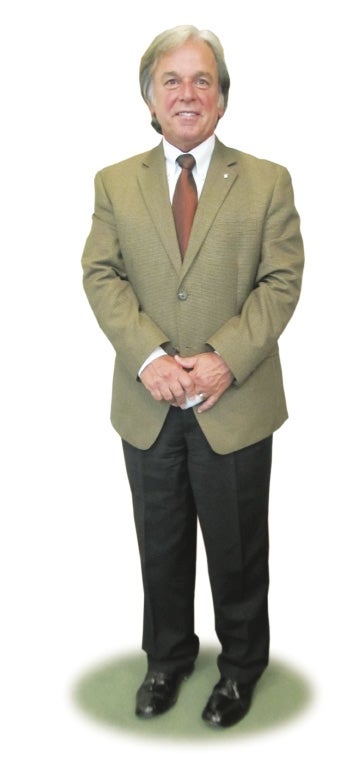Q&A with David Jordan, Seven Hills Foundation
 David Jordan, president and CEO, Seven Hills Foundation, Worcester
David Jordan, president and CEO, Seven Hills Foundation, Worcester
As leader of Seven Hills Foundation and its affiliates for nearly 19 years, David Jordan oversees an organization with more than 160 locations and 3,600 professional and support staff for the largest human services and cultural nonprofit in Central Massachusetts. In 2012, the WBJ honored Seven Hills for its professional development programs, which include a “corporate college” and an online “e-academy,” program.
When you talked with us about a year and a half ago, you said things would get a little quieter for Seven Hills. Have they?
Yes … we have been absorbing our very rapid growth that occurred over the past seven, eight, nine years. We have been growing a bit more slowly intentionally, and that's been a good thing. We're ensuring that the infrastructures are in place, that the clinical supports are clearly identified and worked on.
You must have heard many stories about how Seven Hills has helped different individuals with different challenges. Is there any one story that stands out?
There are too many, (but) I'll give you one story. We had just acquired a methadone clinic/substance abuse clinic in New Bedford. They had been around for years. I went down there unannounced. In walked a mother and a father and about a 10-year-old boy. I figured “Mom and kid are there to support this father.” The father goes to the treatment room and mom and kid are waiting. I'll never forget how well (dressed) this kid was. And I thought, “Those parents really love that kid.” It was just remarkable to see. Ten minutes, 15 minutes later, (the father) comes back. I'm thinking, “OK, they're going to leave now.” He takes the boy's little hand; she goes back (for treatment). Fifteen minutes later, she comes back. That little boy always had a parent's hand in his hand, and they walked out together. That little boy was happy, but both mom and dad were being treated for heroin addiction. In that moment, it just hit me that these were loving parents who had a problem just like a lot of people have problems.
I was resolute that we were going to build a new medical treatment center and completely change the paradigm for methadone and drug treatment in Massachusetts.
Seven Hills focuses much effort on behavioral health. Do you believe there needs to be more awareness among the general public of behavioral health issues?
Most certainly. Behavioral health, for America and as viewed by most Americans, is a disgraceful illness to have. Obviously, (that's) an illogical and certainly untrue sentiment. But because it's not physical, because it's not viewable, because we're not seeing someone with a broken arm or with a laceration, we have this tendency to believe that mental illness is something that can be self-regulated. Like a drug addiction of some sort. People with mental illness suffer much if not more than people with a physical ailment that can be dealt with.
You’ve been doing this kind of work for more than 35 years. Does it ever cease being interesting?
Not a day. Every day I get up there is always something fascinating going on, whether it's in one of our clinics, one of our residential programs ... it doesn't really matter. We serve about 28,000 people and, every day, there are miracles that happen. There are also a lot of challenges, a lot of issues.
We talked with you in late 2012 about professional development here. You alluded to the coming retirements of baby boomers. With the organization’s professional development activities, how well is it positioned for those coming transitions?
I look at my senior leadership team: For the most part, we are all baby boomers (mid-50s to mid-60s). I know that over the next 10-year cycle, we're going to have a major transition in senior leadership and if we drill down further, middle management. We began planning for that about six, seven years ago. We're trying to identify middle management right now who can then be poised to become the next group of senior leaders. And we are, in fact, beginning to unofficially identify key players.
Read more
More Than Money: MBA Students Focus On Nonprofit Careers









0 Comments